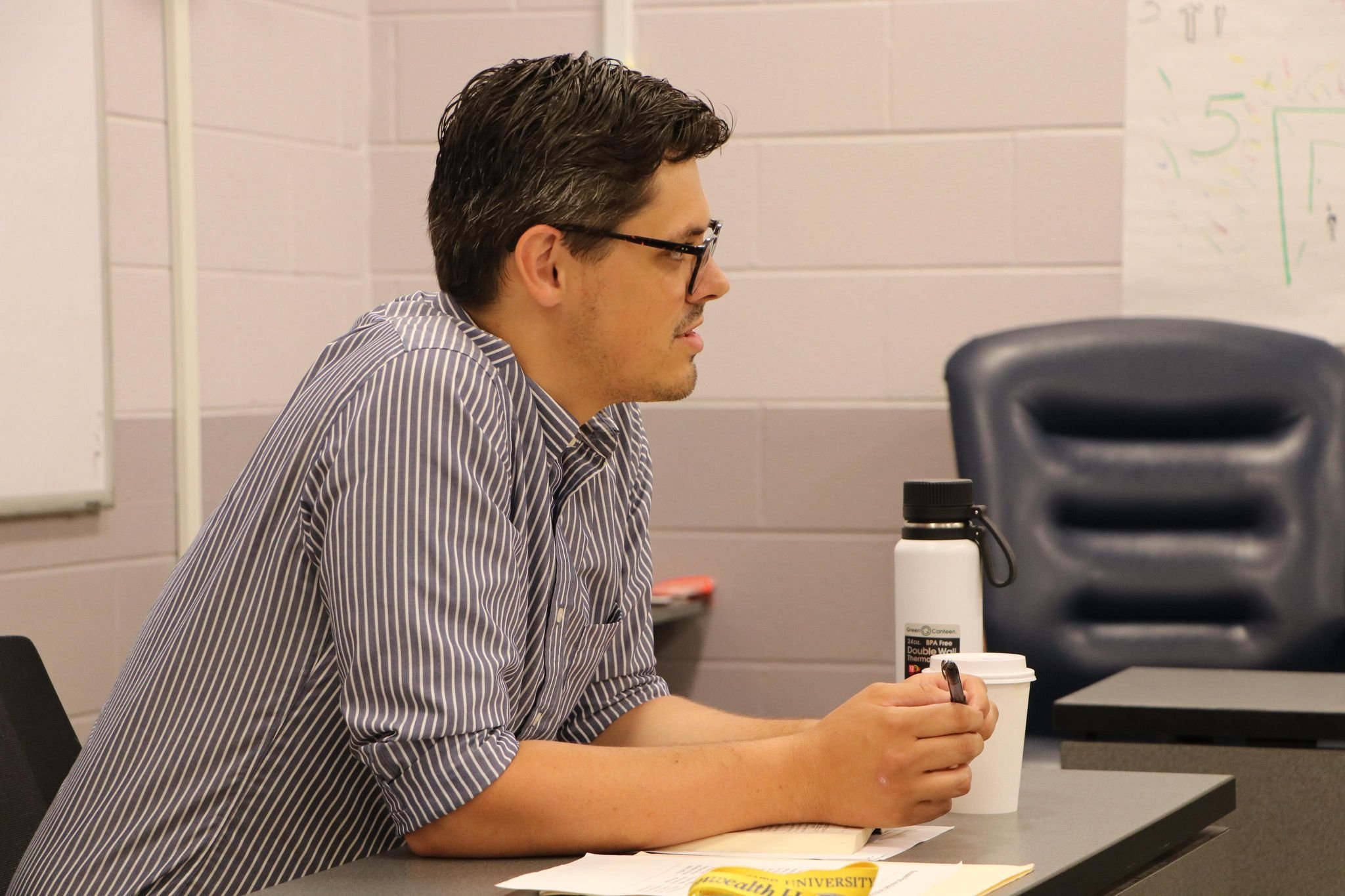“The purpose of education, finally, is to create in a person the ability to look at the world for himself, to make his own decisions, to say to himself this is black or this is white, to decide for himself whether there is a God in heaven or not. To ask questions of the universe, and then learn to live with those questions, is the way he achieves his own identity. But no society is really anxious to have that kind of person around.”
James Baldwin, “A Talk to Teachers”
Honors and Awards
College Teacher of the Year, Kentucky Council of Teachers of English (2023)
Board of Regents Teaching Excellence Award, Murray State University (2022)
Graduate Dean’s Instructional Excellence Award, Case Western Reserve University School of Graduate Studies (2017)
Teaching Statement
Two priorities shape my pedagogy. First, I want my classes to help students to trust the vitality of their voices and gain confidence in their ability to participate in the scholarly, professional, and civic communities that will engage them throughout their lives. Second, I strive to create a classroom community where students can safely and productively practice critical discernment, where they come to recognize everything, from drafts of their writing to their most cherished beliefs, as open to growth and revision. When these goals are met, students come to appreciate the value of what they bring to the classroom while scrutinizing the premises that shape what they value. At all levels, whether working with first year undergraduates or doctoral students, I design my courses to prioritize supporting students in these goals while giving them room to adapt such goals to their own needs, interests, and future plans. To that end, I structure all of my courses around multiple avenues for student participation, formal and informal writing assignments, and regular opportunities for reflection and self-assessment.
To facilitate strong participation, I ask students to view their contributions to class discussion as just one of many ways to make meaningful contributions. In addition to the traditional Socratic seminar format, I routinely employ guided in-class discussion groups, ongoing asynchronous conversations using the Canvas discussion board, and, in recent semesters, a collaborative note taking system that allows students to keep track of and share key ideas, points of contention or confusion, and possible research questions. Providing several points of entry encourages more students to stay involved in our conversations throughout the course, anchoring their learning in a classroom community made more vibrant by their regular participation.
Likewise, when building writing assignments into my courses, I emphasize versatility by ensuring that students write critically about course content in multiple ways. For instance, in my survey of post-1865 American literature, students write short essays with “formalist,” “historicist,” and “presentist” approaches to the text(s), giving them practice in textual close reading, contextualizing literature in its time and place, and considering the present-day significance of the canonical and non-canonical works we read from a variety of periods, respectively. Similarly, in general education humanities courses, I assign a “creative midterm” project alongside “critical analysis” and “uncritical reading” papers, giving students practice writing both argument-driven interpretive essays and well-crafted personal reflections on the reading.
Finally, to encourage self-assessment that encourage students to reflect not only on what but also how they are learning, I ask students to submit regular informal self-assessments describing what they perceive as their strengths in class participation, areas for improvement, and questions or concerns they have about their progress. Additionally, I recently implemented a final portfolio assignment that requires students to assess their participation throughout the course and to revisit and revise multiple assignments.
Selected Recent Courses
Major Authors: James Baldwin (Undergraduate, coming Fall 2023)
Topics in African American Literature: The Preacher in African American Literature from Reconstruction to the Present (Graduate, coming Summer 2023)
The American Novel: “American Fiction’s Secular Faith” (Graduate, Spring 2023; Undergraduate, Spring 2021)
Secularization and Modern Literature (Undergraduate, Fall 2022. Semester in Regensburg, Germany)
Critical Theory: “Criticism and Theory Today” (Graduate, Summer 2022)
American Literature, 1870-1920: “Disenchantment and Its Discontents” (Graduate, Fall 2021)
Teaching Selected Authors: “Zadie Smith” (Graduate, Summer 2021); “James Baldwin and Flannery O’Connor” (Graduate, Summer 2020)
American Literature, 1920-Present: “Secularization and Its Discontents” (Undergraduate, Spring 2019)
American Literature, 1865-Present: Survey, Regionalism through Modernism (one or two sections per year)
Topics in Literature and Philosophy; Honors Seminar in Literature and Philosophy (one or two sections per year)
Critical Reading, Writing, and Inquiry: “Understanding the University” (one or two sections per year)

